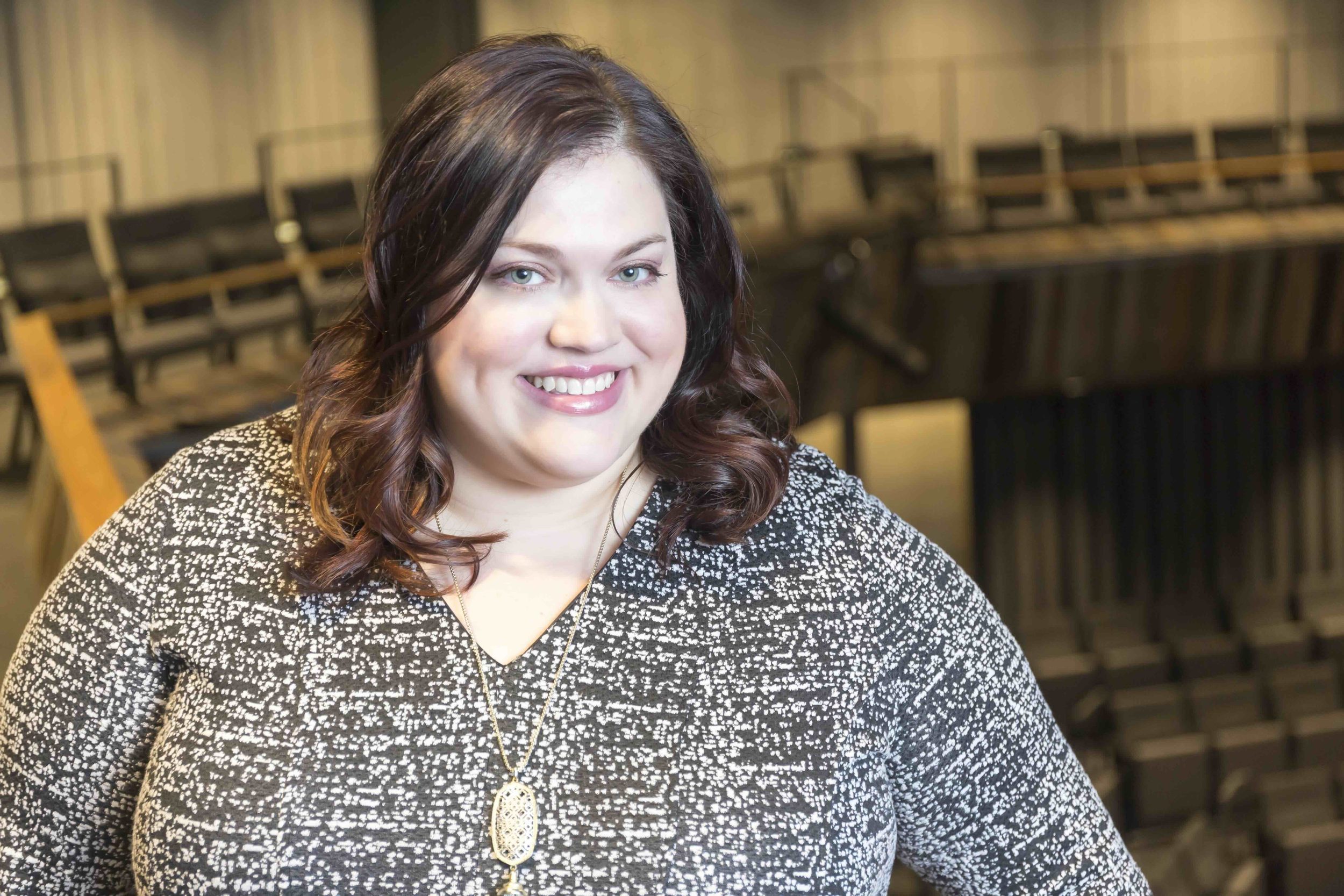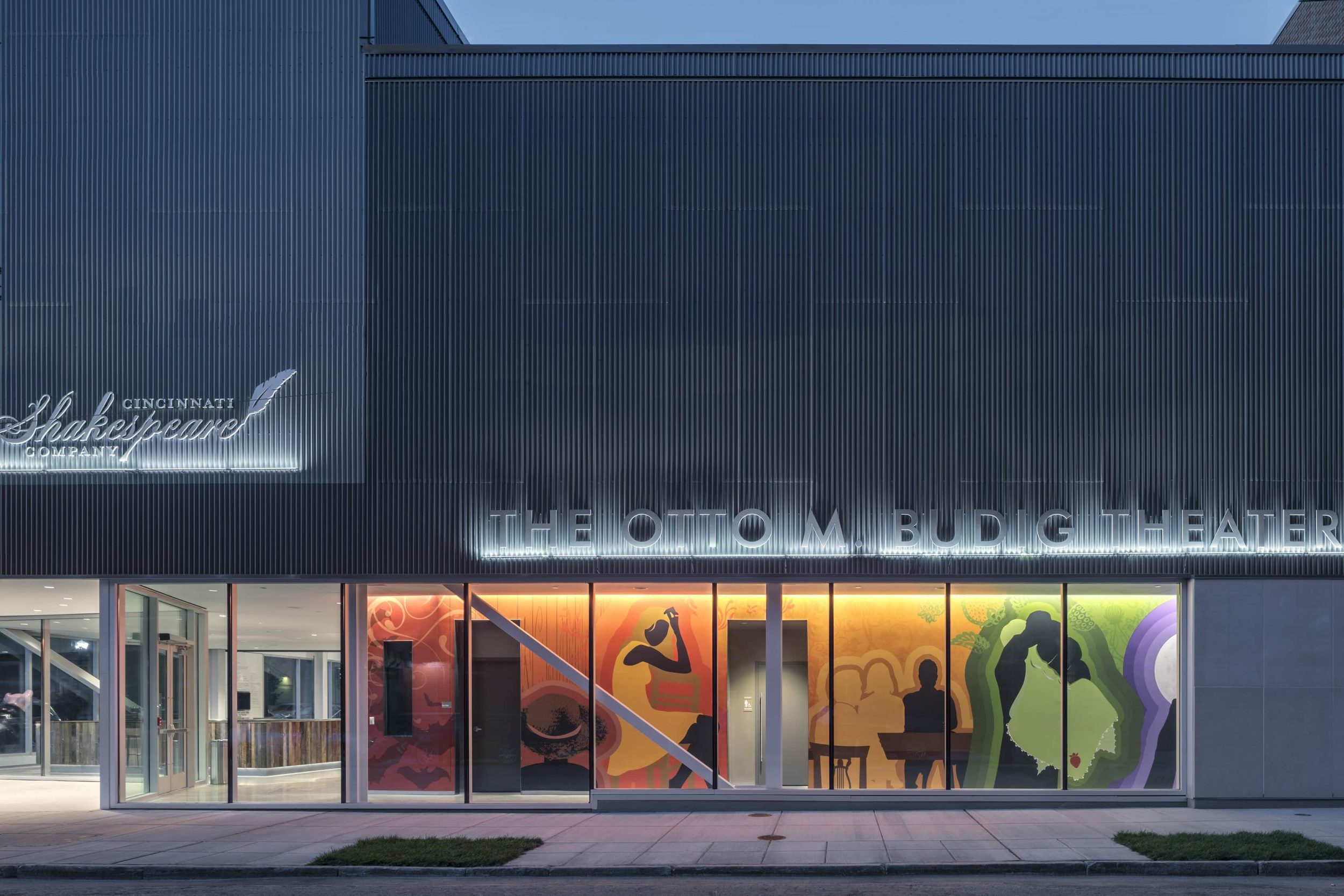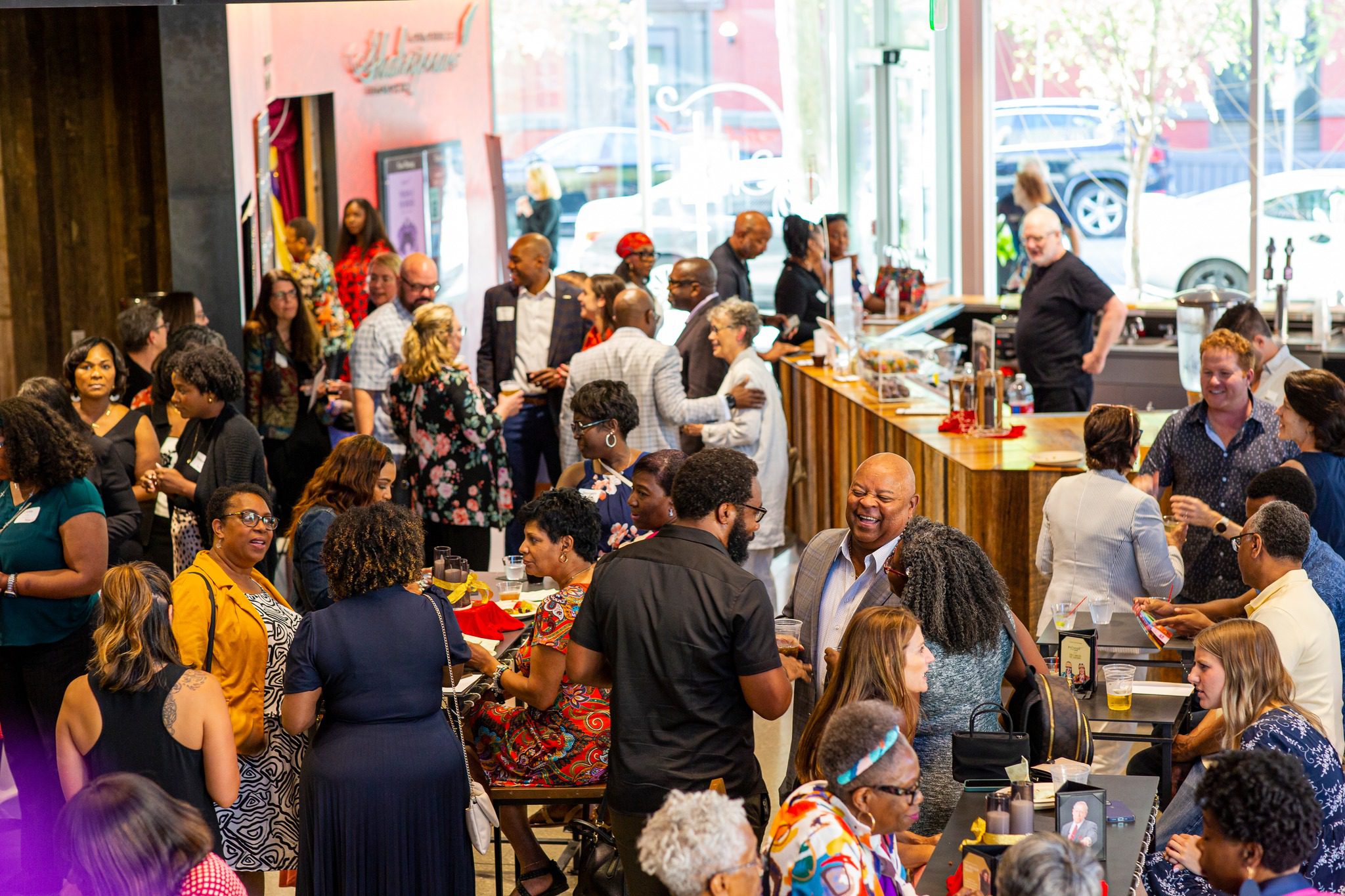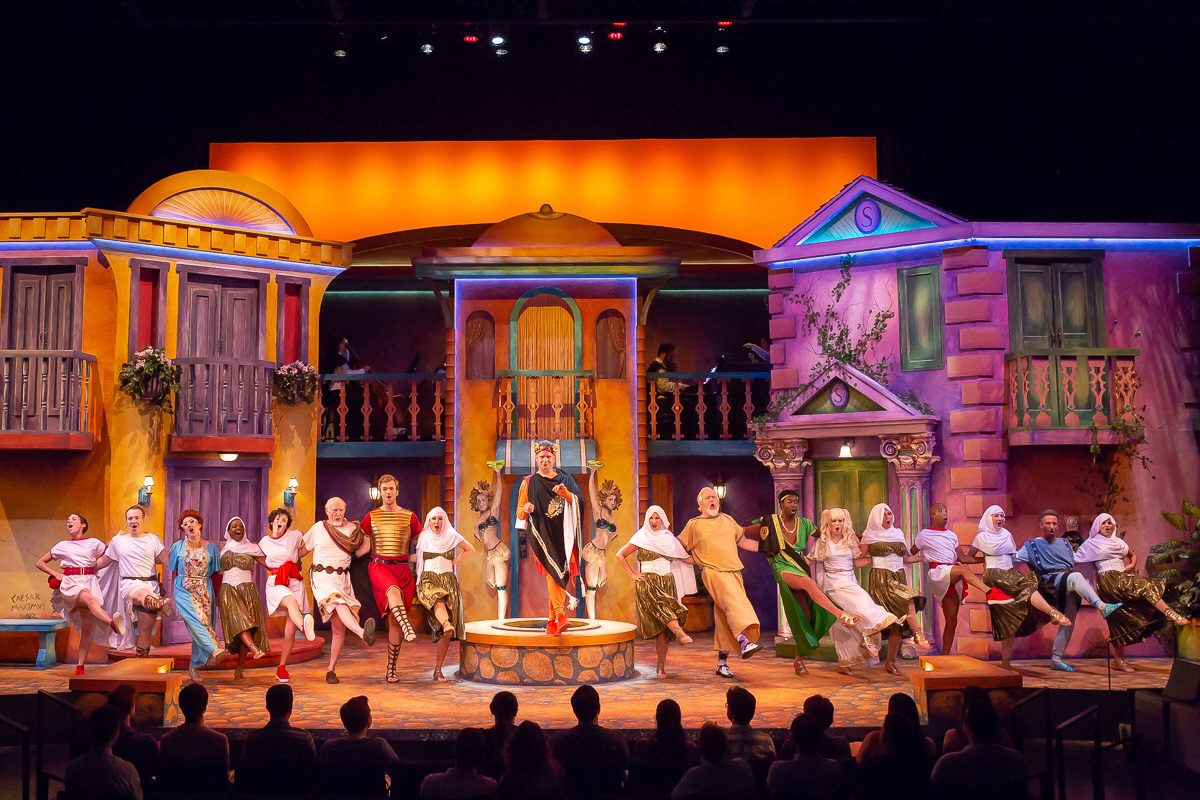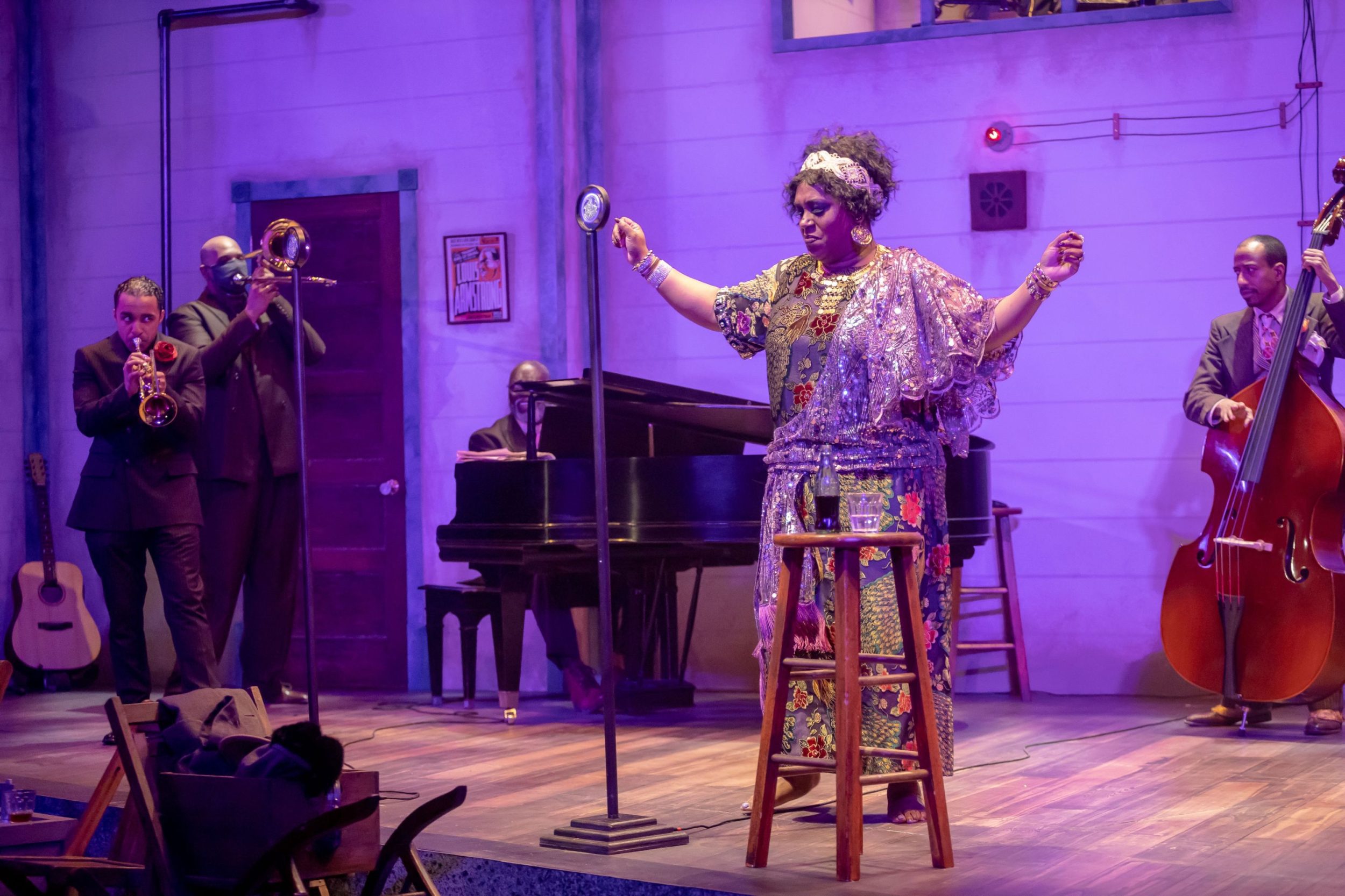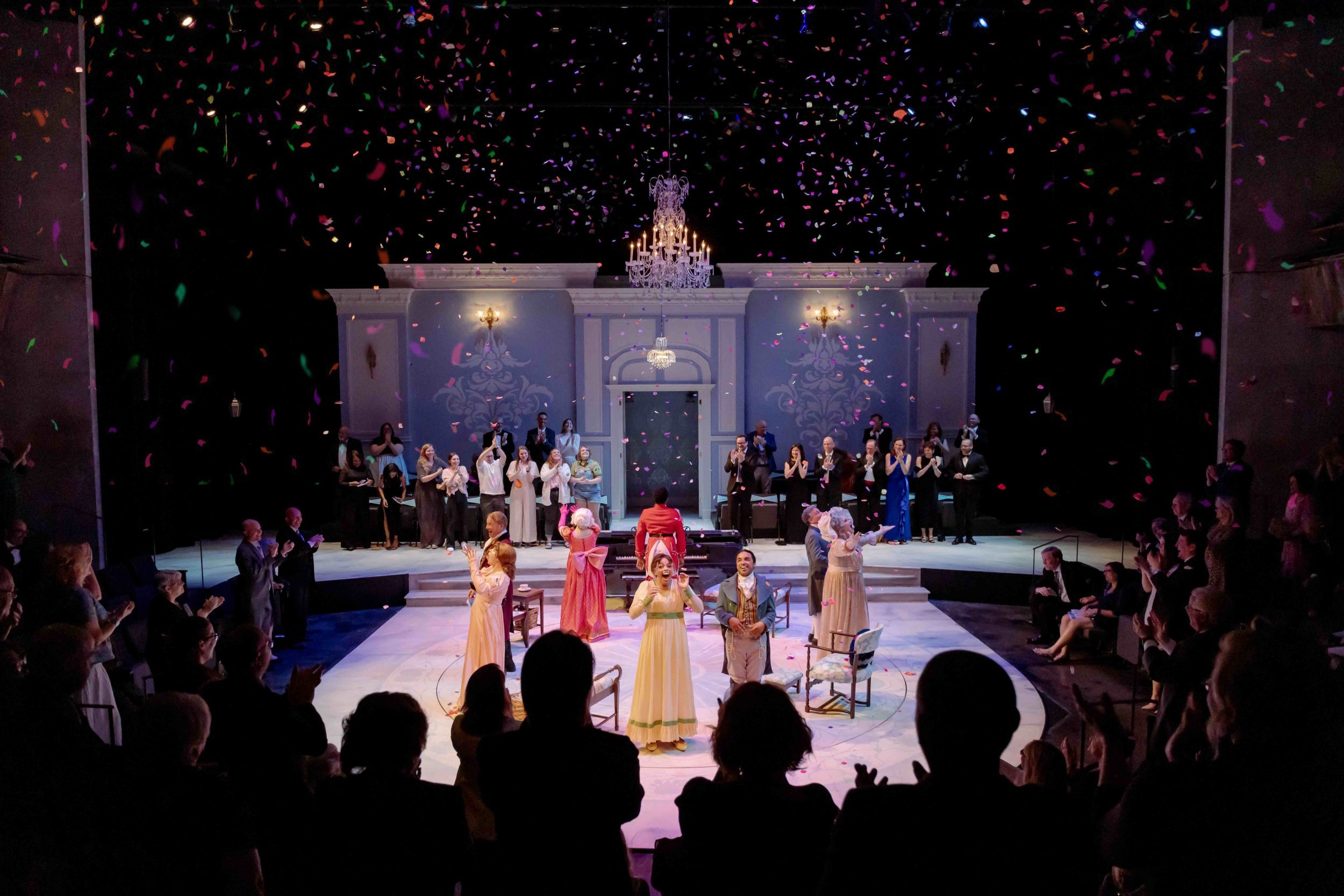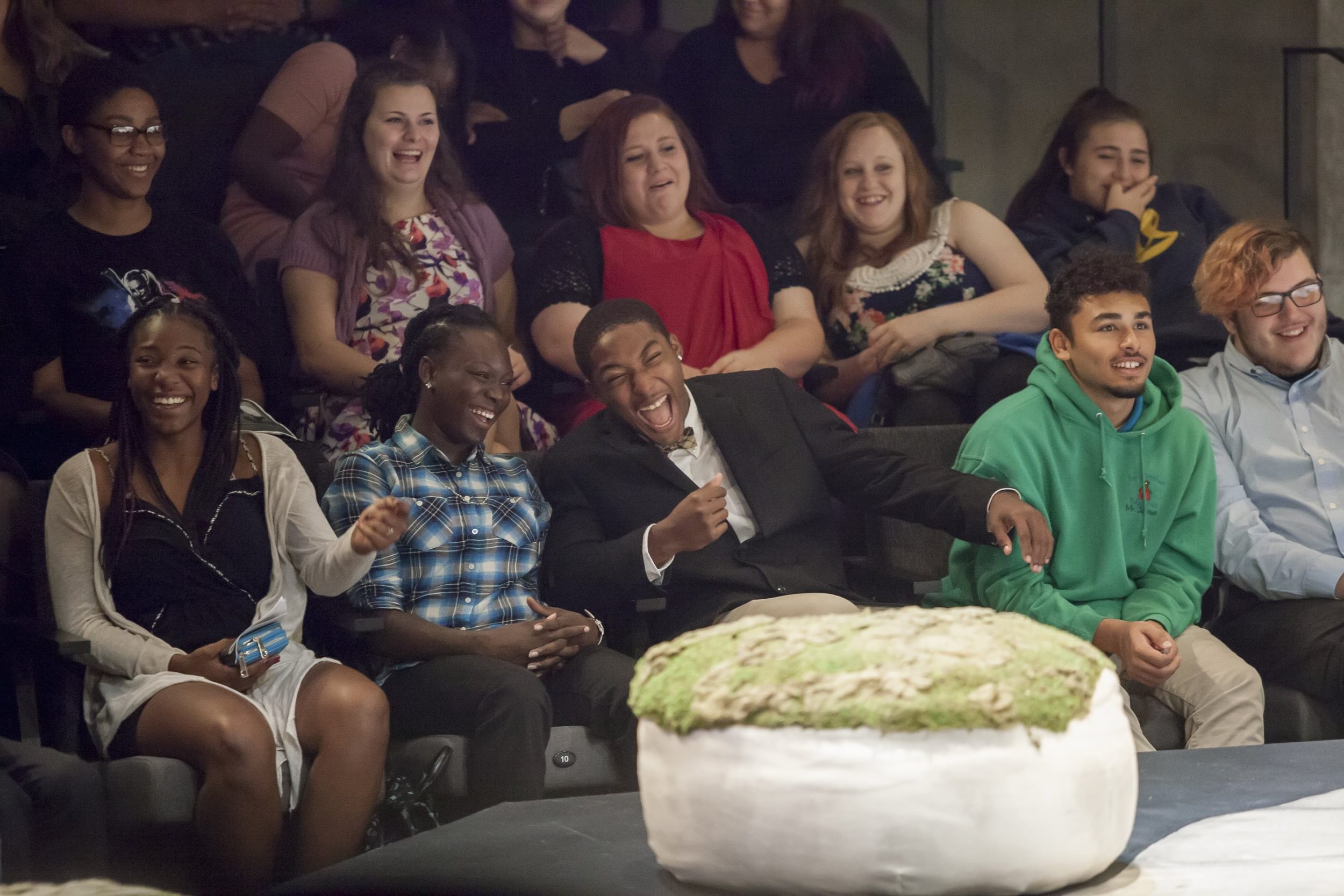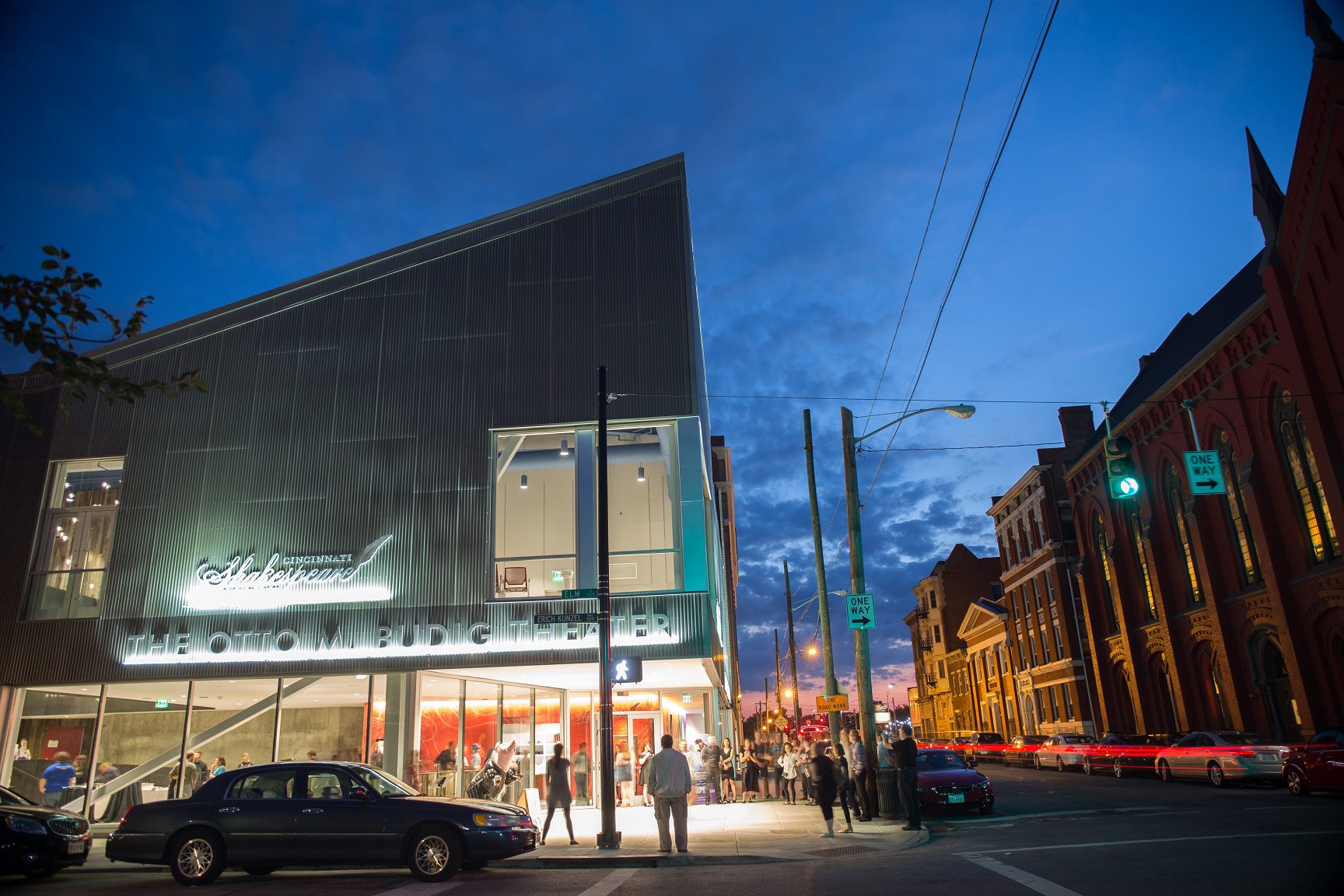Jeanna Vella is the Director of Marketing at Cincinnati Shakespeare Company (Cincy Shakes), where she’s spent the past 16 years shaping audience experiences, building community engagement, and reimagining how classical theatre connects with the modern world.
We got to know Jeanna and her team when designing and developing the new Cincy Shakes website, which features a Spektrix integration. In this candid conversation, Jeanna reflects on her career journey, audience development, navigating culture clash, and why arts marketers should stop being so precious.
Could you introduce yourself and tell us what you do – and just for fun, what did you want to be when you were growing up?
My name is Jeanna Vella. I’m the Director of Marketing with Cincinnati Shakespeare Company. I’ve been there for 16 years. I’m a Cincinnati native, but I went off to school in New York and worked my way back to Cincinnati.
When I was a kid? Oh boy. I was heavy into band. I started in fifth grade, playing clarinet, and I really wanted to be a musician. I did that all through elementary, middle school, high school, into college. I majored in music in college. In the end, I think I kind of made that dream come true because I get to work with artists all the time – but I get a better schedule than a full-time musician.
Do you still play?
Yeah, I do. I play with a local group here called the Southwest Ohio Symphonic Band. And I’m actually going to be in our next show, Mrs. Dalloway. I’m going to be in the pit orchestra. So, that’ll be kind of a cool experience.
That is very cool. Can you talk us through your journey into your current role?
Sure. I majored in music at Miami University in Oxford, Ohio – different Oxford, different Miami! I studied music education with a minor in arts administration, and that’s where I really got into the admin side. After that, I went to NYU for performing arts administration and worked with the Marilyn Horne Foundation, the Skirball Center for the Arts, and the Broadway producers of Wicked. That was around 2003–2007 when Wicked was huge.
I spent a couple of years in New York and then worked at Kentucky Shakespeare Festival in Louisville for a year. After that, I got the job at Cincinnati Shakespeare. I had no particular interest in Shakespeare – I still am a little middling on him, just kidding! But I ended up at two Shakespeare companies. I didn’t think I’d stay this long, but the company’s grown so much. We’re in a new building, we have new systems, new audiences – it hasn’t felt like the same job for very many of those years.
What does a typical day look like for you at Cincy Shakes?
Our days revolve around collaboration. I’m meeting with the marketing team, the development team – we have a group called the DevComms, part marketing, part development. We meet with production and our producing artistic director to plan shows and campaigns.
It’s a mix of long-range and short-term projects, so you’re always stoking different fires. That’s what I love about it – big initiatives alongside day-to-day stuff. I’m rarely just sitting at a desk. I love being in the office. Working from home made me realize how much I value being in a theatre, seeing actors walk by, overhearing costume conversations – it’s constant creative collision.
You serve a wide range of audiences. How do you approach that?
We think in three buckets: our main stage audience, our education programming – we see 25,000 students a year – and community engagement. The biggest in the latter is Shakespeare in the Park, which we take to 40 different venues across Ohio, Kentucky, and Indiana. A lot of other “Shakespeare in the Park” series across the US take place in a single venue – ours is unique because we go to the people in so many different communities and venues.
Dividing our audiences helps us manage resources and communications. Each group wants and needs different things, and we’re constantly thinking about how to move people along that engagement journey – from first-timers to loyal fans.
What are the biggest challenges you’re facing right now?
Honestly? There’s a culture clash happening in America, and we’re a blue city in a red state. Even things that aren’t meant to be political can be seen that way. A casting decision or creative choice might get interpreted as “making a statement” even when it’s not. That impacts attendance and donations – some people “vote with their dollars.”
But others support us because we stand for artistic freedom. Classical work gives us some cover – the themes are often universal. When the characters are in Elizabethan dress, audiences sometimes feel safer examining big ideas.
Let’s talk fundraising. What works well?
Our strength is the collaboration between marketing and development. Our Development Director, Sara, and I just gave a conference talk on this. It seems obvious that marketing and fundraising should work together, but many organizations struggle with that.
We use a marketing-informed approach to development. It’s the same audience. Whether you’re buying a ticket or making a donation, the user journey and message need to be aligned. That alignment is our superpower – and it’s helped us improve everything from campaigns to donation flow on the website.
How has the rise of social media changed your approach?
It’s a game-changer. And post-pandemic, there’s a real crisis of trust in institutions. That affects us. People ask: who do we trust – media, influencers, organisations?
You used to get coverage in the newspaper, hang a poster, run an ad, and you were set. Now you can do all of that and still struggle to break through. Building trust has to happen differently with every audience.
We once had new visitors who showed up super early for a show and walked into the theater while we were warming up. My team thought, “Who does that?” But I said, “Hang on-maybe they just didn’t know.” There are no universal rules for what to do at a theater. We have to design experiences for people who’ve never been before.
I love that. You’re breaking down assumptions.
One of my biggest pet peeves is the classical music rule of not clapping between movements. It’s like a trick to embarrass newcomers. Nobody tells you that in the program. It’s all cultural conditioning. So we try not to have “ghost rules” that make people feel excluded.
We’ve had audiences complain that others are talking or shifting in their seats. But that’s part of the live experience-you’re sharing space with other people. Embrace that!
How do you measure impact?
We do it in lots of ways. Our main stage shows get post-show surveys asking about the experience – beyond just “did you like it?” We read every comment with the leadership team.
In education, we ask every student two simple questions: is this your first show? How well did you understand it before and after? Unsurprisingly, comprehension improves dramatically when students see Shakespeare, not just read it.
We also ran a small case study with a group of students. Only one class got our in-school workshop, but we surveyed all five. One question asked: “People who are different than me bother me-do you agree?” The group we worked with showed a significant decrease in agreement after studying Romeo and Juliet with us. That suggests increased empathy.
That’s a remarkable insight.
It really was. Another result? The kids we didn’t work with said they liked Shakespeare less after studying him in class. Our group? Appreciation went up. So we joked: “It’s not safe to study Shakespeare without us!”
That kind of data helped us secure long-term funding. Funders now want impact, not just “art for art’s sake.” Especially those from science or commerce backgrounds.
Where do you look for marketing inspiration?
I love collecting brochures from other organisations. I’m always sharing examples. With Shakespeare, there’s almost nothing original left – someone’s done it all. That’s a blessing and a curse. New works are harder to market because there’s no baseline awareness.
Our three values are: community, commitment, and courage. They reflect what we do, who we serve, and the bravery it takes to keep doing this work.
What advice would you give to someone entering arts marketing?
Stop being so precious. Share your ideas. Be generous. We’re not competing with other theaters – we’re competing with Netflix. And the couch. That’s our competition. If we support each other, we all win.
What led you to redesign your website and brand?
People expect frictionless experiences. If they can buy something from Apple in two clicks, they want that everywhere. We’re a nonprofit with a small budget, so it’s a challenge. But we knew our website had to improve.
Hotfoot stood out because you didn’t treat us like just another client. You felt like a partner. You showed genuine interest, and I could feel your culture – even across the ocean.
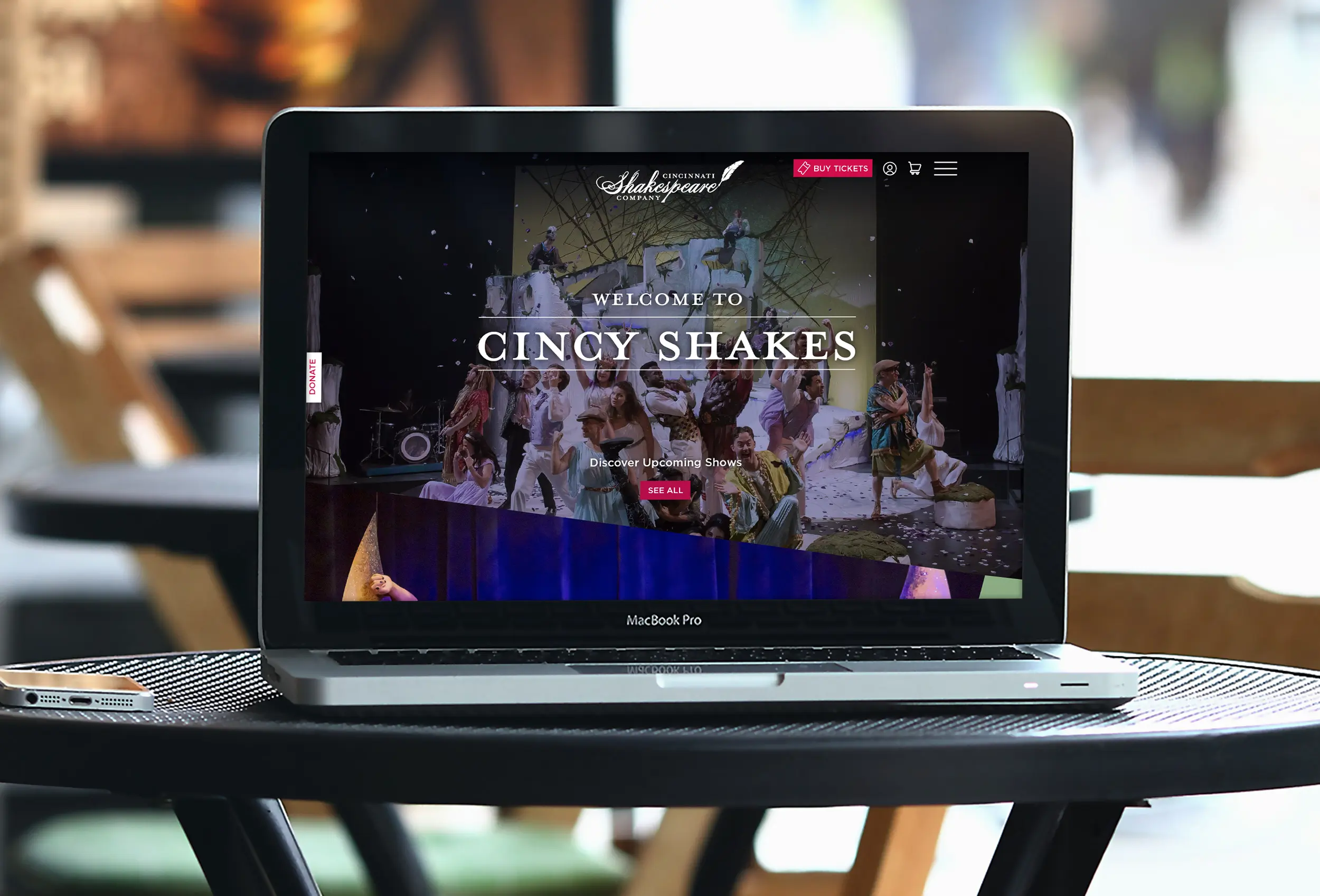
That means a lot. What’s next?
We’re doing The Tempest with a sustainability concept – everything made from recycled materials. I volunteered to help with the beading. I do beadwork on the side, so I’m basically the unofficial “Bijoux Department.”
Also, we’re skipping our usual London trip this year to visit the Stratford Festival in Canada. It’s only an eight-hour drive from here! But I’ll be back to London next year for sure. The theatre scene there is always so inspiring.
You can listen to Jeanna Vella and her colleague Sara Clark on the popular podcast CI Talk where they share what happens when we break down silos and create true cross-departmental partnerships. Learn more about the website project Hotfoot undertook with Cincy Shakes here and visit their website here.
Also check out our recent interviews with Jessica Smith, Director of Communications at St John International, and Rosie Danford-Phillips of Roots and Shoots.
